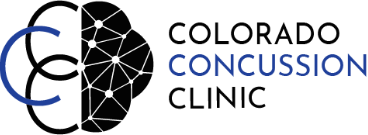This is a question we are asked quite often here at the Colorado Concussion Clinic. It is a difficult one to answer, as there is no definitive timeframe for recovery from a brain injury, and no way to fully predict how long any given individual will take to feel fully recovered. Everyone recovers slightly differently, and every human brain is unique.
About 1.6 to 3 million concussions are diagnosed every year in the United States (UPMC). The vast majority of these - about 80% - are considered to be mild and self-resolving. For some patients with concussion, the symptoms will generally resolve within 2-4 weeks post-injury. However, for 20% of concussion sufferers, the symptoms will persist for longer. We also know from the literature that early intervention is better than sitting and waiting at home. Since there is no way of knowing who is in the 2-4 week group, even if it means just coming into the office for an evaluation and education, beginning care will help to reduce the likelihood of persistent symptoms, and help you to understand what sorts of activities to do and what to avoid during the recovery process.
Following a concussion, you may experience headaches, cognitive impairment, visual disturbances, balance problems, dizziness, nausea, fatigue, sleep problems (too much or too little sleep), autonomic disturbances such as heart rate or temperature regulation problems, and emotional disturbances. Sometimes all of these symptoms follow a nice linear pattern of improvement over time, sometimes one or more symptoms may be particularly stubborn and persist for longer than others. All of the symptoms can be helped and may resolve faster with proper treatment. Generally, concussion/mild traumatic brain injury (abbreviated as mTBI) is not considered to result in permanent changes in brain function. This is, however, an area of study in research, as some studies show evidence of lingering, quantifiable effects. Certainly the symptoms can last for quite some time.
In general, when patients present to us at the clinic post-concussion with symptoms that have persisted at the 4 week time frame post-injury, we start to look at recovery as taking months, not weeks. We will typically estimate around 4 months of active treatment, support, and follow up. Things will improve during that time frame, but absolutely may persist for that long. However, it is still “normal” for symptoms to persist at the 6 month mark, or even longer - although we certainly will try to help you feel better before then!
Some clues that things might get better faster:
Significant progress in symptoms within the first few weeks after the injury. If someone is already starting to feel better on their own, that is a good sign. Now it is our job to make sure they are 100% recovered over the next few weeks.
Being in excellent physical shape helps with recovery, no matter what injury you have.
Relatively mild symptoms in the beginning generally means a faster recovery.
No prior history of concussion.
Some clues that things might take longer:
Very severe symptoms in the beginning that do not significantly improve on their own within the first month.
Significant cognitive (mental processing) impairment.
Oculomotor (visual) symptoms, such as difficulty focusing your eyes or keeping your eyes steady to read or to track.
Significant emotional disturbances, such as depression or anxiety, or significant post-traumatic stress disorder symptoms.
Underlying inflammatory conditions (for example, autoimmune conditions) will often delay recovery.
Prior head injury, but most especially if there were symptoms that did not fully resolve.
Prior neurological injuries, such as stroke, previous post-viral syndromes, etc.
A significant amount of other bodily injury occurring as a result of the injurious event, particularly neck injuries.
A review study from the British Journal of Sports Medicine in June 2017 attempted a broad review of over 3,000 studies over several years regarding the risk factors associated with prolonged recovery from concussion. They found that multiple studies on concussion over the years failed to show a significant correlation between loss of consciousness or amnesia (memory loss of the event or of time around the event) as definitively associated with prolonged recovery (BJSM). There may be correlation between female sex and prolonged recovery over 4 weeks (BJSM). There is a strong correlation between acute symptom burden and worse clinical outcome (BJSM). Factors such as age, prior history of fully recovered concussions, neurodevelopmental disorders, or prior history of migraine were found to be very mixed and were not definitive (BJSM).
In a nutshell, some patients have symptoms resolve within the first 4 weeks. For others, the symptoms can last longer, up to several months. Early access to treatment and management of symptoms will help, as will access to support in coping.
Sources:
A systematic review of potential long-term effects of sport-related concussion. Manley, G, et al. British Journal of Sports Medicine, 51 (12), July 17, 2017. https://bjsm.bmj.com/content/51/12/969
University of Pittsburgh Medical Center, Sports Medicine Concussion Center, accessed on 9/24/24. https://www.upmc.com/services/orthopaedics/conditions/concussion

